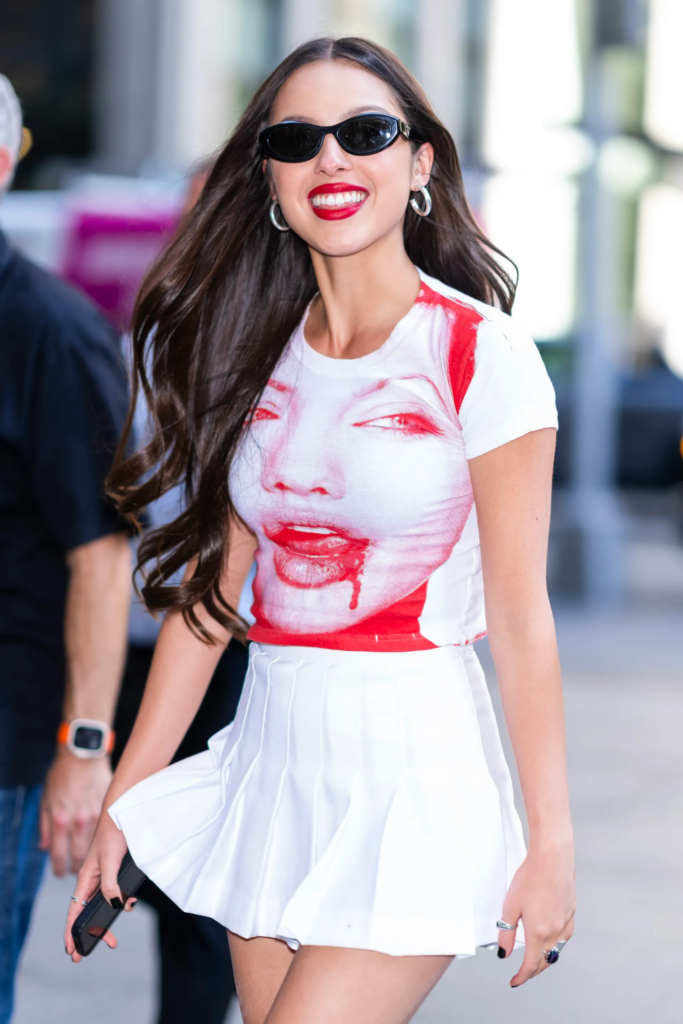Gen Z, gaining awareness post the heyday of the early 2000s’ sarcastic graphic tees, seems to be circling back to that bold fashion statement, moving away from the more earnest, occasionally awkward styles of the 2010s. These in-your-face, sometimes controversial slogan tees like Britney Spears’s “Dump Him” or Paris Hilton’s “Stop Being Desperate” were iconic of the Y2K era. Before the social media explosion, these T-shirts allowed celebrities to express their personalities and hint at their personal stories, like Naomi Campbell’s humorous “Naomi Campbell Hit Me And I Loved It!” shirt or Julia Roberts’s “A Low Vera.”
The origin of graphic tees in fashion traces back to the 1980s with British designer Katharine Hamnett’s bold, politically-charged slogan shirts. However, their roots extend back another 40 years, spanning politics, film, and the military. In the 2000s, graphic tees flooded youth fashion but later lost their appeal as they evolved into overly cute or cliché phrases.
By the mid-2010s, the women who grew up with these shirts saw their slogans mature to reflect more nuanced views, from feminist statements to humor-filled mom-centric messages. However, these messages eventually turned into meme material and clichéd slogans.
Recently, controversial shirts by brands like Praying, sporting bold statements like “God’s Favorite” or “Victim,” have gained traction among celebrities. Notable was Addison Rae’s Holy Trinity bikini, which sparked significant controversy. Fashion student Paulina Rosil successfully tapped into this trend on Depop, selling provocative tees with sayings like “Ex-Girlfriend Material” or “I ❤️ Sluts,” reflecting Gen Z’s inclination towards ironic and daring expressions.
Some suggest this trend resurgence is linked to our brief attention spans in the social media era, where graphic tees provide an instant message. For instance, Olivia Rodrigo’s Angelina Jolie vampire T-shirt subtly promoted her single and album. This new wave of graphic tees among Gen Z seems more about defying norms and preempting criticism rather than earnest expression.
However, even as Gen Z celebrities embrace these bold statements, there’s a balance between personal expression and public image management. While they may sport daring slogans in private, they often hesitate to share these publicly. Celebrities still use graphic tees to convey their personalities, humor, or political nods, but the essence remains unchanged – they’re a form of self-expression, sometimes profound, sometimes just for fun.



